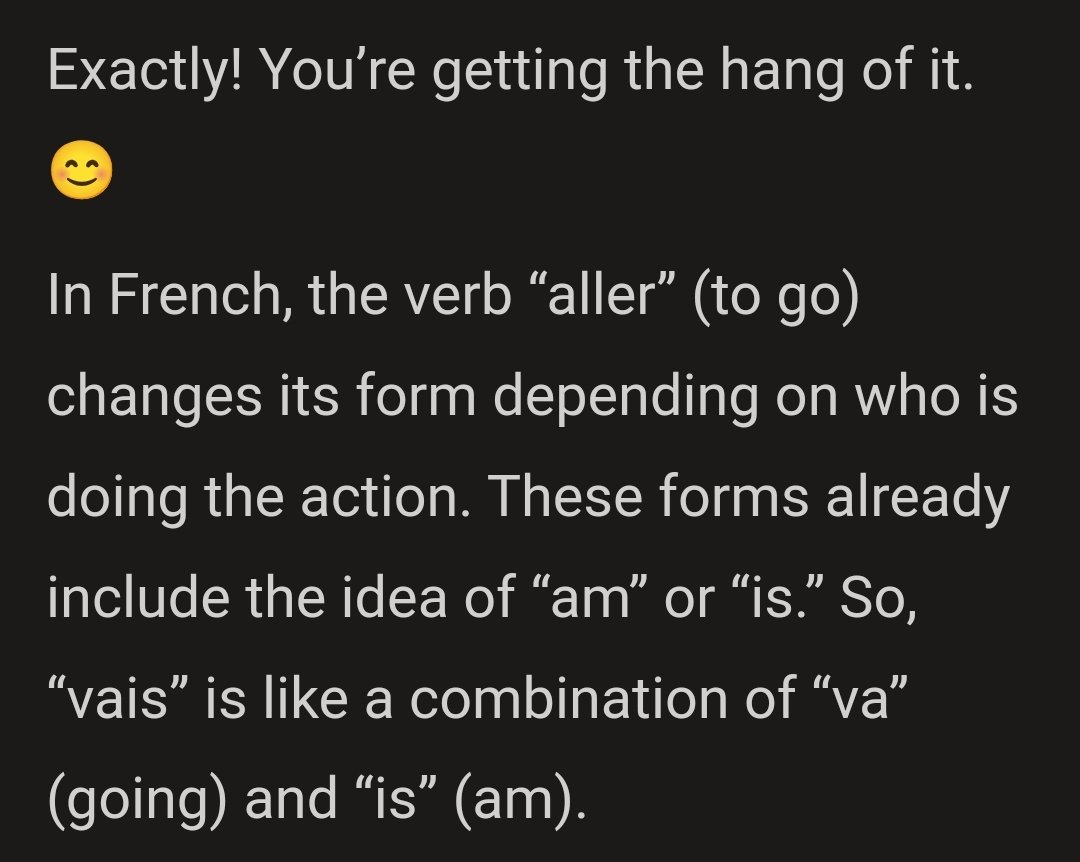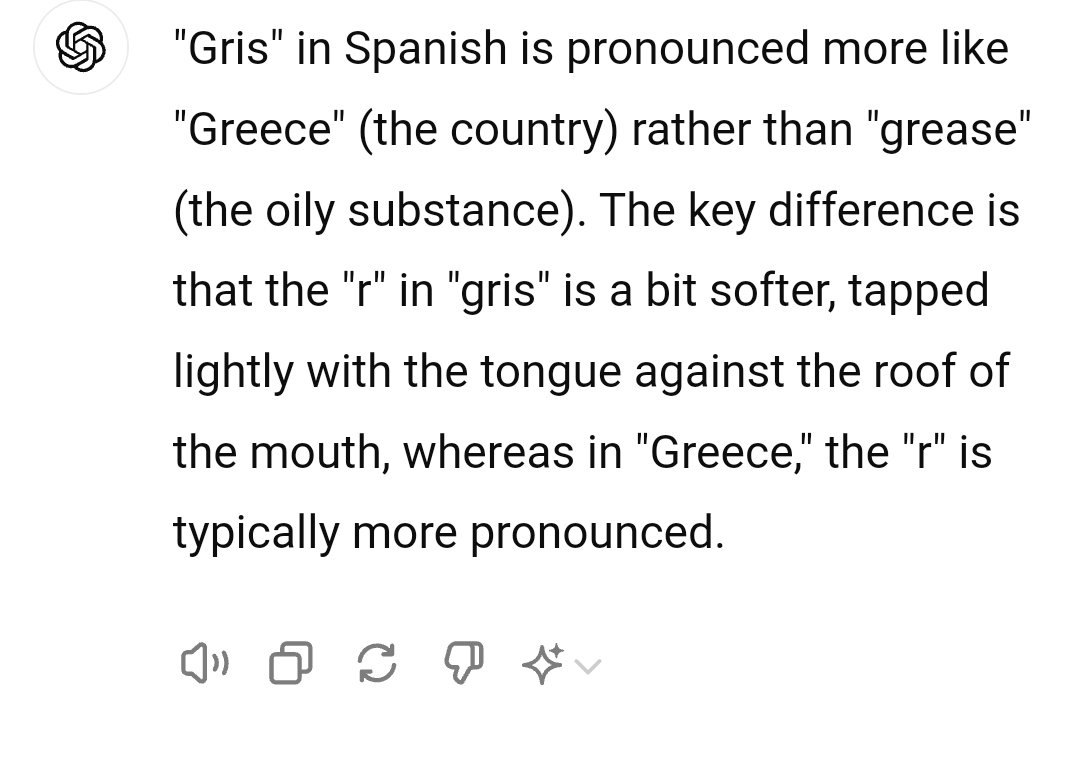The links to AI conversations in this post have gone dead. I think you can still get the general impression from the post. Then maybe try it for yourself?
The government have suggested that teachers need to harness the possibilities of AI to help them plan and resource lessons. The idea is that this will save time, and may help new teachers or non-specialists to come up with useable lesson plans.
A year ago to the week, I wrote a post looking at AI and some aspects of language learning. It found that AI was very poor at manipulating language. It could explain in general terms, but as soon as you tried to use it for specific examples or exercises, it started to go wrong. Its examples didn't match its explanation, and it couldn't stick to the brief. And it was sexist and racist. So not a good start. But let's look at how it fares with lesson planning.
We should get the howlers out of the way to start off with.
 |
| We know from last year that AI struggles with analysing letters in words. |
(By the way, looking at pronunciation in the above example was from my wrangling with the AI. It would never come up with something as focused as that.)
 |
| It still struggles with taking words apart. |
(And people laugh because it doesn't know how many rs there are in strawberry!)
 |
| AI thinks that je vais meaning I am going, can be explained because it is made of the French word va + the English word is |
(It didn't randomly come up with this. It was as a result of me asking for clarification.)
 |
| AI designs an activity where the teacher reads out the pupils' name and age (11) and the pupils have to guess who it is. |
 |
| Admit it, you tried saying it to see if there's a difference. |
 |
| I asked it how long it expected this task to take. It said about 30 minutes. There are not enough words in the dictionary to complete the task! |
 |
| Writing out the French alphabet for homework. (It's the same as the English alphabet.) |
So it makes mistakes. Mistakes with language, mistakes with tasks. And sometimes they are enormous and obvious and hilarious. Although I have to say, that one of my own kids was actually set that very task of writing out and illustrating (with English words) the French alphabet for homework. I may still have it in the loft!
But how does it do in terms of planning lessons?
It always produces a very similar lesson plan. It starts with a warm up, then a repeat after me, then a matching activity, then a write your own paragraph, then listen to some native speakers, then do a role play with a partner, then write a paragraph for homework. Oh. And I forgot flashcards. It loves flashcards.
A sequence of activities, with very little focus on what language is being taught and how the lesson should evolve around knowledge of the teaching points required by the specific content of the lesson. It treats every lesson as some language to be heard and repeated, with some grammar to be explained. As a result, there's no care or attention paid to whether the tasks can be done using the language that the pupils have. So most often, its lessons would not work because the tasks pupils are being asked to do, are not doable.
I have then had to engage with it in a protracted conversation where I give up my time and experience and expertise in order to coach and coax it into producing something better.
Here's an interminable conversation where I tried to get it to focus on teaching the language rather than just a series of activities. Click here to see me wrangle with it.
Here's another one where I tried to start from a language point rather than a topic to see how it did. Unfortunately, its grasp of French is so poor, it was never going to work. In case French isn't your specialist subject, hardly any of the letters it claims are silent are actually silent. Click here to see me trying to help it.
So, far from being time saving, this is taking up hours of my time to try to get it to produce something workable. And far from being suitable for new or non-specialist teachers, it requires huge experience and expertise to try to guide it round horrible pitfalls, and try to get it to focus on teaching language, not stringing together activities.
I have tried it for science lessons too, with the same result. It comes up with activities, with no notion of what it is actually trying to teach and how to engage pupils in that learning. It doesn't use the experiments to tackle fundamental concepts or address misconceptions. In fact at one point it said that a balloon flying along a guide string was demonstrating Newton's Third Law, because the string moved in the opposite direction to the balloon. Here's a summary of its science lessons in a thread unroll.
So I could be quite insulted by the government. They are always on our back and telling us that good enough isn't good enough. But if they recommend this half baked unskilled nonsense, then they clearly have no knowledge or respect for our expertise.
BUT...
But I think I have found a use for it. Just it's the opposite of what the government is suggesting. Clearly, AI is no use at all for new teachers or non-specialist teachers. Or for saving time. It takes an immense amount of expertise and time to coax it towards something useful. It has no knowledge of pupils. It can quote some insight into teaching principles but struggles to apply them. Its subject knowledge is a worry. It likes to string together activities, rather than build learning around the specific concept it is teaching. Does this remind you of anything?
It reminded me a lot as I was doing it, of the way you can work with a very new trainee teacher to develop their ideas into a workable lesson plan. Of course trainees arrive with differing levels of experience, but this seems to share so many of the things that they have to hone. Spotting flaws, refocusing on what matters, avoiding distracting activities done for the sake of the activity, factoring in knowledge of what will work with pupils, targeting concepts and misconceptions, building in progression.
Here's one where I try to persuade it to change its focus to really think through the language needed for the tasks. After a couple of hours, we did get somewhere.
So maybe we have discovered a useful tool. It was a rehearsal/simulation of how as a mentor, I might work with a trainee. So perhaps this could be used for mentors to hone their patience with new trainees. Or for course tutors to use with their trainees to live-model lesson planning. It would be great if there were a use for it!









